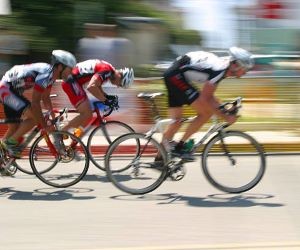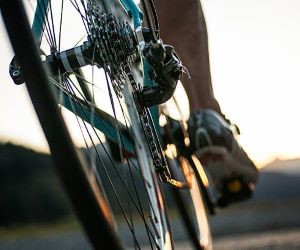HOW DO I IMPROVE SLEEP FOR CYCLING RECOVERY?
Sleep is a critical component of cycling recovery, enabling muscle repair, glycogen replenishment, and mental restoration. Optimizing sleep quality accelerates adaptation from training, reduces fatigue, and supports long-term performance.

Understanding sleep and recovery
Sleep is a fundamental recovery mechanism for cyclists. During deep sleep, the body releases growth hormone, repairs muscle tissue, and consolidates neural adaptations. Inadequate sleep impairs performance, reduces alertness, and increases injury risk.
Sleep stages and physiological benefits
Sleep consists of REM and non-REM stages, each contributing to recovery. Non-REM sleep promotes muscle repair and glycogen replenishment, while REM sleep supports mental recovery, focus, and cognitive function essential for cycling strategy and performance.
Non-REM: muscle repair, growth hormone release
REM: cognitive restoration and mental focus
Sleep continuity affects overall recovery efficiency
Factors affecting sleep quality for cyclists
Several factors can influence sleep quality, including training load, nutrition, environment, and mental stress. Understanding these elements allows cyclists to optimize their sleep and recovery.
Training intensity and timing
High-intensity or late-evening workouts can disrupt sleep due to elevated heart rate, cortisol levels, and body temperature. Scheduling intense sessions earlier in the day and including cooldown routines promotes better sleep.
Avoid intense workouts within 2–3 hours of bedtime
Incorporate cooldown routines and stretching post-ride
Use lighter evening rides to maintain consistency without disrupting sleep
Nutrition and hydration
Nutritional intake affects sleep quality. Heavy meals, caffeine, and dehydration close to bedtime can impair sleep onset and depth. Balanced meals and proper hydration support optimal recovery during the night.
Avoid caffeine and stimulants 6–8 hours before sleep
Consume light, carbohydrate-rich snacks to stabilize blood sugar
Maintain adequate hydration without excessive fluid intake before bed
Sleep environment optimization
Creating an optimal sleep environment enhances both quality and duration. Temperature, lighting, and noise levels significantly influence sleep efficiency and recovery.
Temperature and comfort
A cool, comfortable bedroom promotes deep sleep stages. Use breathable bedding, supportive mattresses, and appropriate sleepwear to maintain comfort throughout the night.
Maintain room temperature around 18–20°C (64–68°F)
Use supportive mattress and pillows to reduce muscle tension
Ensure bedding promotes breathability and comfort
Light and noise control
Reducing light and noise exposure helps regulate circadian rhythms. Blackout curtains, eye masks, and white noise machines support uninterrupted sleep and improve recovery outcomes.
Use blackout curtains or eye masks to eliminate light
Employ white noise or earplugs to reduce disturbances
Minimize electronic device use before bedtime








